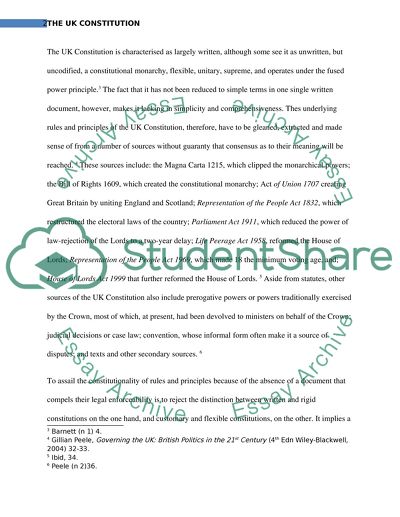Cite this document
(“The UK Constitution Essay Example | Topics and Well Written Essays - 1500 words”, n.d.)
Retrieved from https://studentshare.org/environmental-studies/1404979-tto-understand-the-nature-of-the-uk-constitution
Retrieved from https://studentshare.org/environmental-studies/1404979-tto-understand-the-nature-of-the-uk-constitution
(The UK Constitution Essay Example | Topics and Well Written Essays - 1500 Words)
https://studentshare.org/environmental-studies/1404979-tto-understand-the-nature-of-the-uk-constitution.
https://studentshare.org/environmental-studies/1404979-tto-understand-the-nature-of-the-uk-constitution.
“The UK Constitution Essay Example | Topics and Well Written Essays - 1500 Words”, n.d. https://studentshare.org/environmental-studies/1404979-tto-understand-the-nature-of-the-uk-constitution.


